|
It's Black History Month here in the United States, and while I firmly believe that Black history should be studied and celebrated year-round, I thought this would be a good time to highlight some of the good articles and important contributions by Black food historians and cookbook authors.
I'll be sharing articles on Facebook all month, but wanted to make some lists for reference, plus links to lots of great books! The following historians are in no particular order, but you should read about them all! And if you want to support them (and, by extension, The Food Historian), you can purchase one or more of their books! Jessica B. Harris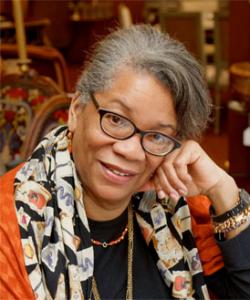
Dr. Jessica B. Harris is considered one of the foremost experts on African diaspora food and has written a number of books and cookbooks on the subject. In 2019, she was inducted into the James Beard Foundation Cookbook Hall of Fame. She was also featured on "The Food that Built America," along with numerous other television appearances.
She is probably best known for her 2012 history, "High on the Hog: A Culinary Journey from Africa to America," which links Southern (read: African) food traditions back to Africa and their connections to slavery. You can learn more about Dr. Harris on her website, or check out one of her numerous books! Adrian Miller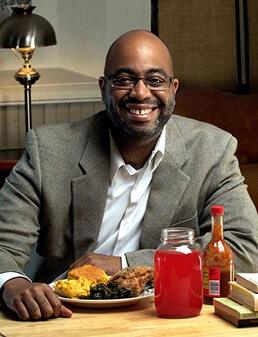
Adrian Miller is the Soul Food Scholar. He is a certified barbecue judge and culinary historian whose two books, "Soul Food: The Surprising Story of an American Cuisine, One Plate at a Time," and "The President’s Kitchen Cabinet: The Story of the African Americans Who Have Fed Our First Families, from the Washingtons to the Obamas," have both won numerous awards. He's currently working on a new book, "Black Smoke," a history of African American barbecue culture.
Tonya Hopkins
I first met Tonya as she was recreating a 19th century African-influenced dinner that Black cook Anne Northup (wife of Solomon Northup - of 12 Years a Slave fame) might have cooked while she was working at the Morris-Jumel Mansion in New York City. I had a wonderful time and Tonya lives up to her "griot" name as a fantastic storyteller. Although Tonya has not yet written her own book, she has contributed to numerous scholarly publications. She is also co-founder of the James Hemings Foundation, named after Thomas Jefferson's enslaved, French-trained chef de cuisine, and consultant on the upcoming exhibit at MOFAD, "African/American: Making the Nation's Table."
Michael Twitty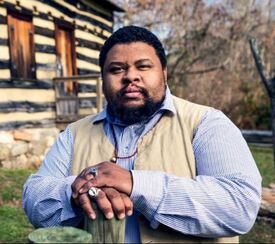
Michael Twitty is a bit unique in this group - not only is he a researcher, cook, and writer, he is also a historical interpreter. Twitty first rose to prominence with his 2013 Open Letter to Paula Deen, calling out her racism and appropriation of African American foodways under the guise of "Southern" food. In 2017, he published "The Cooking Gene," which Twitty calls, "a genealogical detective story, a culinary treasure map, a blueprint for finding your roots, a series of history lessons, a revealing memoir and a spiritual confessional sprinkled with recipes." In 2018, it won the James Beard Foundation's Book of the Year Award. You can read more of his work on his blog, Afroculinaria.
Toni Tipton-Martin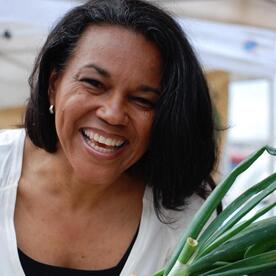
I first heard of Toni Tipton-Martin with the buzz around the publication of "Jemima Code: Two Centuries of African American Cookbooks," which was the 2016 James Beard Foundation Book Award winner. I purchased a copy at an OAH conference and loved it. Toni also had a longstanding career as a food journalist and is a cookbook writer as well. You can learn more about her on her website.
Frederick Douglass Opie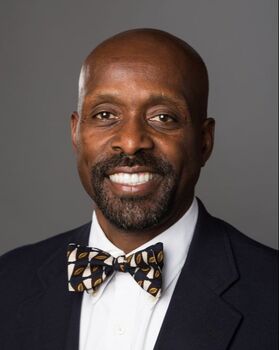
Fred Opie (PhD) is a Professor of History and Foodways at Babson College. He has written a number of engaging food histories, including one of Zora Neale Hurston's WPA-era writing on Florida Food. Fred also hosts a podcast and writes extensively about foodways on his blog, in addition to other projects.
Psyche Williams-Forson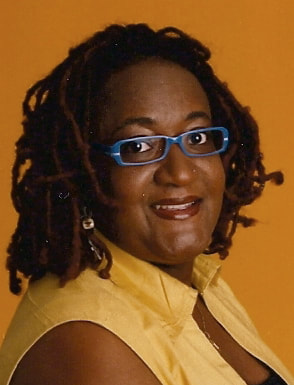
Psyche Williams-Forson is Associate Professor and Chair of the Department of American Studies at University of Maryland College Park. Psyche is probably best known for her work, "Building Houses Out of Chicken Legs: Black Women, Food, and Power." She has also curated two online exhibits: "Fire and Freedom: Food and Enslavement in Early America,” for the National Library of Medicine and “Still Cookin’ by the Fireside,” an online text and photo exhibition on the history of African American cookery for the Smithsonian Institution’s Anacostia Museum.
Marcia Chatelain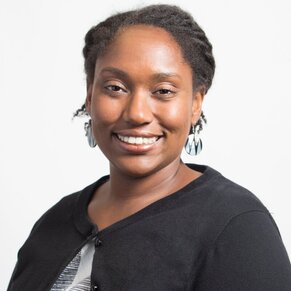
Marcia Chatelain is a Provost’s Distinguished Associate Professor of history and African American studies at Georgetown University. She was a Eric & Wendy Schmidt Fellow at New America from 2016-2018. She spent her fellowship year on a book that explores visions of economic and racial justice after 1968 and the fast food industry. That book is "Franchise: The Golden Arches in Black America," about building Black wealth and the role of fast food franchising in post-Civil Rights America, and it was JUST published in January, 2020!
Leni Sorensen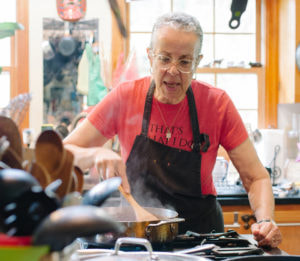
Leni Sorensen is a culinary historian and historical interpreter extraordinaire. Consulting with places like Colonial Williamsburg and Thomas Jefferson's Monticello, she is an expert on African-American foodways and Virginia cookery, particularly the work of Mary Randolph, who published The Virginia Housewife in 1824. Leni is now retired from museum interpretation, but continues to work as an independent scholar. You can learn more about her via her website. Or, read this great 2010 interview with Virginia Living.
I'm sure I've forgotten a few! If I have, please contact me and I'll update the list. If you enjoyed this list and you want to support The Food Historian (and all these wonderful historians!) you can just click on the cookbook images and purchase their books from Amazon! The authors will get their royalties and The Food Historian will get a small commission.
Or, if you're so inclined, you can join us as a member of The Food Historian. You can join online here, or you can join us on Patreon. Members get access to members-only sections of this website, special updates, plus discounts on future events and classes. And you'll help support free content like this for everyone. Join today!
7 Comments
Lou
6/7/2021 05:13:32 pm
Thank you for this great website and page! This is awesome! I grew up in NYC, and in the 1980's I used to watch a Black chef from New Orleans on public television. He had a rich accent and didn't smile or talk too much, he just cooked. He wore a white chef's coat and hat and worked in what looked to be a large formal kitchen. Does anyone remember this man's name?
Reply
6/7/2021 11:56:36 pm
Hi Lou,
Reply
9/21/2022 04:05:51 pm
Hi Sarah! I'm not sure how I never saw this post until now lol but thank you nonetheless. I hope that my reply to Lou above is helpful... Interesting sidenote: the character in Frank's Place was based on Mr. Leslie! let's connect directly via email... Sincerely, Tonya (@TheFoodGriot) 9/21/2022 03:58:46 pm
Hi Lou I think the chef you're talking about is named Mr. Austin Leslie... I posted about him relatively recently (in July of 2022): https://www.instagram.com/p/CfiTDcZMBRM/?utm_source=ig_web_copy_link
Reply
10/1/2022 10:28:05 pm
Hi Tonya - Thanks so much for making that connection! I had no idea Frank's Place was based on a real person! Your comment will be posted after it is approved.
Leave a Reply. |
AuthorSarah Wassberg Johnson has an MA in Public History from the University at Albany and studies early 20th century food history. Archives
July 2024
Categories
All
|



















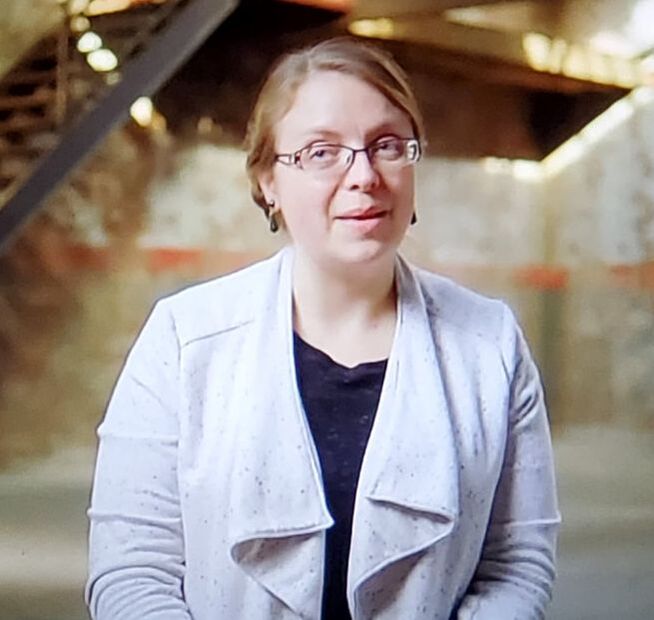
 RSS Feed
RSS Feed